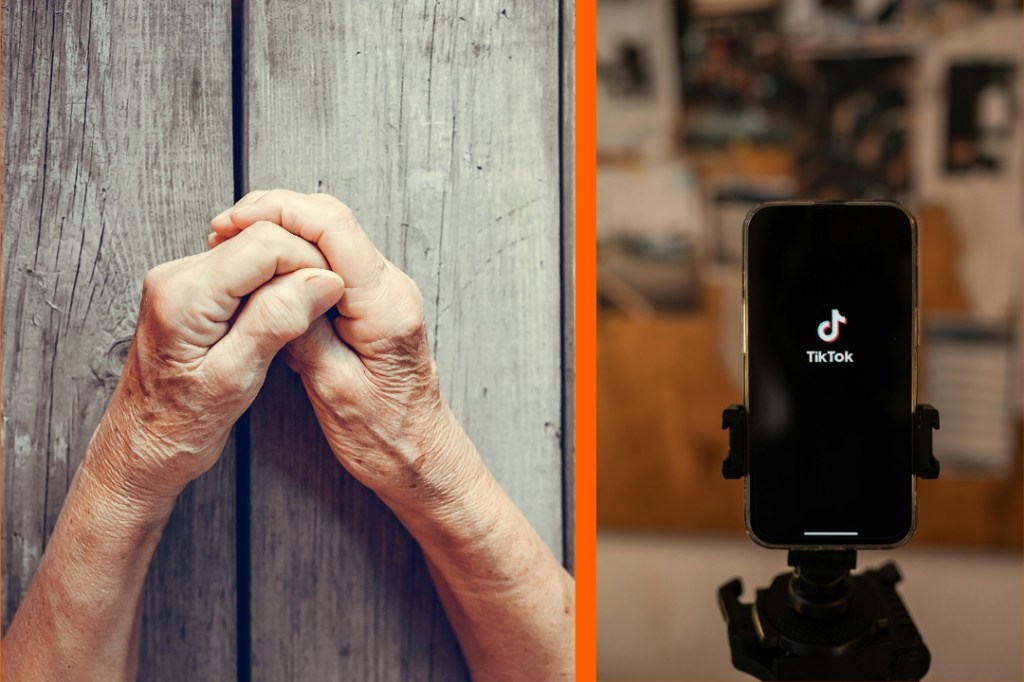For many of us, the idea of interrupting someone when they’re talking is almost always a no-no. Conversation means taking turns—listening while another person talks, taking some time to think about what they’ve said, and then responding accordingly. Interjecting before a person is finished speaking is seeing as “cutting them off” and perceived as rude.
While this perception may be part of the historically dominant Northern European culture in the U.S., it’s not a universal thing. In fact, the opposite is true within many cultural groups.
TikToker Sari (@gaydhdgoddess) explained how conversing works in Northeastern Jewish culture, and how her being “an interrupty person” isn’t actually a sign of rudeness, but rather a sign of active engagement in the conversation. This concept is called “cooperative overlapping,” and while it may appear to be “interrupting” to an outside observer, it’s a standard conversation style for people accustomed to it.
“You’re overlapping just like at the end of what someone’s saying, you’re not trying to cut them off because you don’t care what they have to say. You just, you already got the gist, so you’re building up on it. So to us, good conversation, there are not any pauses. If there’s a pause, I think somebody doesn’t want to be speaking to me anymore, unless they’re visibly thinking or chewing or something.”
She explained that the reason some people find Jewish Northeasterners “grating” (think Bernies Sanders, she said) is because their conversation style is different. That doesn’t mean it’s bad or wrong—it’s just different.
The term “cooperative overlapping” comes from sociolinguist Deborah Tannen, who described how it works in her book “Conversational Style: Analyzing Talk Among Friends.” In a later essay, Tannen described how people with different conversation styles might interpret interruptions and pauses in speech:
“A speaker who stops talking because another has begun is unlikely to think, ‘I guess we have different attitudes toward cooperative overlap.’ Instead, such a speaker will probably think, ‘You are not interested in hearing what I have to say,’ or even ‘You are a boor who only wants to hear yourself talk.’ And the cooperative overlapper is probably concluding, ‘You are unfriendly and are making me do all the conversational work here’… ‘”
In other words, these conversational differences can lead to misunderstandings and hurt feelings if we don’t recognize and understand what’s happening and why.
A few caveats are in order, of course. Not all Jewish people participate in cooperative overlapping as a rule, and there are several cultures outside of the Jewish Northeast who do. People from various Eastern European, Indian, and African-American cultures, as well as different geographical regions (generally New York/Northeast), have shared that such interaction is common and viewed as active engagement. It can also be common among people with ADHD or other neurodivergences.
As Anil Dash wrote on Twitter, “Ahhhh omg it feels so validating to hear this has a name! I really struggle with talking over people (I understand many experience this very negatively) but it’s an incredibly difficult pattern to change because it’s literally how I grew up communicating enthusiasm & support. Not talking ‘with’ someone is like leaving them alone, similar to refusing to look at them when talking.”
The difference between cooperative overlapping and actually rudely interrupting may be subtle, especially for those who aren’t used to it. Those of us from cultures that take distinct turns talking and allow pauses between turns may find cooperative overlapping overwhelming, and the seemingly chaotic conversation style can feel offputting.
But that discomfort goes both ways. People from overlapping cultures can interpret pauses as coldness or indifference.
Of course, there are personality differences that come into play with all of this as well. Some people within a cultural group may find that the dominant conversational style within that group doesn’t work well for them individually. And it’s also important to acknowledge that there’s a difference between cooperative overlapping in a conversation within a friend group and someone actually trying to dominate the conversation within a different power dynamic. The word “cooperative” is key here. If it becomes competitive, that’s a whole other thing.
The bottom line is communication varies a lot between cultural groups and it’s good to understand those variations. What’s normal or acceptable in one might feel uncomfortable to another, but that doesn’t make it wrong. Learning about these differences and adjusting our expectations accordingly can go a long way toward more enjoyable conversations for all.

































